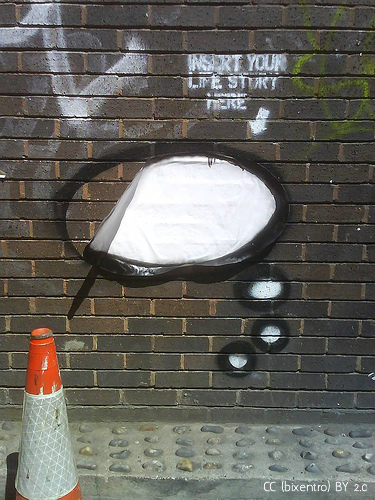The Biographies’ Controversy in Brazil
by Digital Rights LAC on November 22, 2013
By Pedro Belchior
Among the major controversies that occupy the pages of Brazilian newspapers, one of the latest is the former national discussion about the prohibition or authorization to publicate biographies about public people. Alongside the public hearings scheduled for next November 21st and 22nd by the Brazilian Supreme Court, our Congress is organized to vote a bill project also related to the topic.
The topic, famously overcome in the most mature world’s democracies, keeps creeping the Brazilian legal system and causing undeniable damage to its development and approach of the history of the nation.
The hole dispute that goes on in our homeland has been originated from the current text of the 20th and 21st Marco Civil’s Articles, according to which:
“Art 20. Unless when authorized, or if necessary to the administration of justice or the maintenance of public order, the disclosure of written transmission of the word, or the publication, display or use of the image of a person may be prohibited in your application and without prejudice to compensation where applicable, if you achieve the honor, good reputation or respectability, or if intended for commercial purposes.
Single paragraph. In the case of dead or missing, have standing to apply for this protection the spouse, ascendants or descendants. “
“Art 21. The private life of a natural person is inviolable, and the judge, at the request of the person concerned, shall take the necessary steps to prevent or terminate act contrary to this standard. “
In fact, although confusing and poorly written, the texts of such legal provisions do not prohibit the creation of biographies of public people. However, the historical interpretation given by the National Courts eventually corrupted the legal system and created unacceptable aberration against some of the most valuable constitutional rights for a democratic society.
Our judges began to give decisions that cause the following practical situation in Brazil: a biography will only be legitimately written and published if there is an expressed permission of the person which is portrayed there or of their legal representatives. And it is not difficult to understand the consequences of such interpretation after the years. Very few biographies are published in the country and, when they are, invariably the portrayed is descripted as being the holder of numerous qualities and virtues.
In this context, perverse consequences are felt by society. After all, freedom of expression., freedom of scientific research and freedom of information are brutally – not only in relation to the right to inform an individual, but also in relation to the right of the community to be informed -, not forgetting the obvious restrictions to the right to access education, culture and knowledge.
In fact, it is extremely important to notice that the Brazilian legal system does not allow the imposition of selecting an abstract preference to certain constitutional rights, notably because of the already declared constitutional unit. Thus, it is legitimate – and essential – that the rights to the image, privacy and intimacy may prevail when weighted in specific cases. Also, people should keep in mind that censure itself is not a problem for Law and Democracy.
However, the institutionalization of censure and private censure is considered to be unacceptable under any circumstances. The censure, in general, tends to be extremely harmful and should only be accepted exceptionally, after irrefutable justification. This is, after all, the intellectual arrangement currently that dominates in the different constitutional courts of the nations that have already faced this issue in certain depth.
In that same way, it is noticed that the problem is even denser than many have seen in Brazil and affects, in different ways, the most diverse fields. From legal security to the construction of national history. From classrooms to the Internet.
Due to this, there’s no need to face freedom of expression here as an end in itself. It is, above all, an instrument to allow legitimate social development.
After all, greater absurd than the opportunity to rewrite national history – political, economical, social or cultural – according personal interests cannot be afforded. What about the possibility of choosing a single individual to search, analyze and expose public and notorious facts that constituted Brazil?
Everyone should be given the full right to research and publish their findings and interpretations, encouraging the creation of fertile ground for the germination of that “truth” that is as close as possible to reality. After all, only the conflict between theories, discoveries and placements will allow the removal of the selectivity of popular memory and the effective enforcement of the historical facts’ concreteness.
Deny the observance not only of freedom of expression., but also the freedoms and constitutional rights already referred, corroborates to the harmful understanding still present in Brazil, and sustains serious obstacles to performance inside and outside the internet.
Finally, it is faced with this context that – while Congress is in attempt to vote for a bill project related to biographies – the Brazilian Supreme Court will consider the issue in the trial of the Direct Action of Unconstitutionality number 4815 and will a give decision on its prevalence and on the interpretation to be given to Marco Civil’s articles.
The issue moves various interests and bring back controversies in the most distinct Brazilian segments – between artists and biographers, engage journalists, academics, politicians, and others -, but its logical conclusion seems to be obvious. It is expected to be given a permission to publish biographical works without the need of the portrayed consent, under severe penalty to keep the restriction to an entire democratic system.
Pedro Belchior is Professor and Researcher at the Center for Technology and Society at FGV Law School in Rio de Janeiro
pedro.belchior@fgv.br






